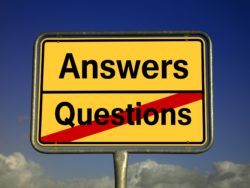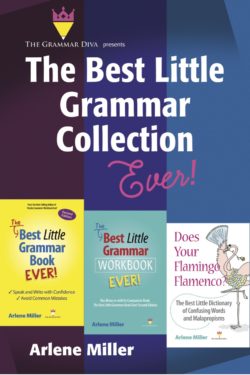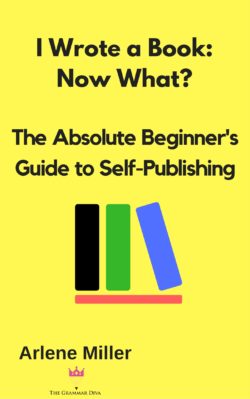Last week I posted this 25-question grammar quiz. This week, as promised, I will give longer explanations for the answers that required them, so here goes.  Incidentally, some readers already commented on some of these things, so thank you!
Incidentally, some readers already commented on some of these things, so thank you!
1. Is this book title capitalized correctly? And We are Happy Again
No. Are needs to be capitalized as well. It may be small, but it is a verb. Is, Am, Be, and other short verbs also need to be capitalized in a title. The only words not capitalized in titles are conjunctions like and and but, articles (a, and, and the), and short prepositions of four letters or fewer (for, by, to, at, etc.)
2. My mom gave snacks to my friend and (me, myself, I).
Me. The easiest thing to do is, of course, take out “my friend.” The mom gave snacks to me. Grammatically speaking, me is an object verb, and I is a subject verb. Here you need an object. Myself is used for emphasis: I myself baked the wedding cake. OR I baked the wedding cake myself. Generally, when you use myself, the subject of the sentence should be I.
3. Is something wrong with this sentence? If so, what? I heard about the meeting at the zoo.
The sentence is unclear. Was the meeting at the zoo? It sounds like it because at the zoo is right next to meeting, and in the English language words are assumed to go with words they are near. You probably heard about the meeting while you were at the zoo. So, it is best to rewrite: At the zoo, I heard about the meeting. OR While I was at the zoo, I heard about the meeting.
4. Is something wrong with this sentence? If so, what? Topics covered during the seminar will include ordering new equipment, training employees on the new software, who will be the system administrator, and assigning tasks for maintaining the new lab.
The sentence is not parallel. Similar things in a sentence should have similar structure. Here is the series made parallel: ordering new equipment, training employees on the new software, deciding who will be system administrator, and assigning tasks for maintaining the new lab.
5. Is this sentence okay? And we will have all the new furniture in time for our open house!
The sentence is okay. We used to say we couldn’t begin a sentence with a conjunction like and, but or so. It is acceptable, mostly in conversational or informal writing.
6. Is this sentence okay? The teacher told us we couldn’t leave our desks until the bell had rang.
Wrong. It should be had rung. Ring is an irregular verb whose forms are ring, rang, has or had or have rung.
7. (Who, whom) did you invite to the movies?
It is said that the differentiation between who and whom will soon be gone. However, if you want to be correct, the answer is whom. Who is the subject form, and whom is the object form. Turn the sentence around to make it a statement: You did invite whom to the movies. Similarly, you would say, You did invite him to the movies.
8. This is the closing of a letter: Sincerely (Yours, yours)
yours. Only the first word of a letter closing is initial capped.
9. Is this sentence okay? I don’t know whom I am going with.
Correct. Whom is the object of the preposition with. I don’t know with whom I am going. However, it is now okay to end a sentence with a preposition like with. But it is still not okay to say,“Where are you at?”
10. Can you identify the grammar issue in this sentence? He told me to carefully tear the coupons.
Split infinitive. The infinitive is to tear (to and a verb). It is split by the adverb carefully. It is fine to split an infinitive. It used to be considered wrong.
11. Is this sentence okay? Why or why not? Joe and his friend tried to climb Mt. Whitney, but he was too out of shape.
Unclear sentence. Who was out of shape? We can’t tell if it was Joe or his friend. Rewrite. Joe and his friend tried to climb Mt. Whitney, but Joe was too out of shape. Or his friend was. Or they both were!
12. What is the problem with this sentence? The meeting is at 8 a.m. in the morning.
Redundant. You don’t need both a.m. and in the morning. They mean the same thing.
13. How would you fix this sentence? The coat, that has a blue hood, is mine.
Remove the commas. The clause that has a blue hood is probably necessary to the sentence to identify which coat you are talking about. If, in the context of the writing, is is not necessary, leave the commas, but change that to which.
14. Between you and (I, me), I think he gave the tickets to (he, him) and Joe.
Between you and me is always correct. Me is an object pronoun, and you and me are objects of the preposition between. He gave the tickets to him; you wouldn’t say He gave the tickets to he.
15. Neither Carrie nor Katrina (are, is) playing in the concert.
The answer is is. When you use neither or either you use the singular verb.
16. I feel really (bad, badly) about missing the meeting.
The answer is bad. Feel is an emotion here, not the action of touching something, so we use the adjective. I feel badly means that your fingertips are not working right.
17. Everyone who is going to the concert needs to bring (his or her, their) ticket.
Everyone is singular, and the verb is is singular. Therefore the pronoun should also be singular: he or she. People have decided that is awkward, and now you can use they as a singular pronoun. I don’t like it, and I won’t do it. You decide.
18. My cat is (laying, lying) in the sun.
Lying. You need to lay something: it needs an object. My cat is laying the toy on the chair.
19. My sister, along with her friends, (are, is) coming with us.
The answer is is. Along with her friends doesn’t count. It is not part of the subject. The subject is my sister, which is singular. If you change it to My sister and her friends, then it is plural.
20. If I (was, were) taller, I could reach that bookshelf.
Were is the correct verb here. It is called subjunctive mood and is used for things that are not true and things that you wish.
21. Is this sentence correct? The class consists of nine boys and 16 girls.
The numbers should be expressed similarly, since they name pretty much the same thing. You can spell out both nine and sixteen, or you can use 9 and 16, but make them consistent.
22, Is this sentence correct? Drive slow through the fog.
Slowly would be better. Slow is an adjective, and slowly is an adverb. The word is modifying drive (drive how?), so you should use an adverb. Sometimes we leave off the -ly; it is called a flat adverb. Flat adverbs used to be used more than they are now. I would stick with slowly.
23. She likes chocolate better than (I, me).
The answer could be either depending on your meaning. The answer is probably I. You need to supply the missing words to know: She likes chocolate better than I (do). Or She likes chocolate better than (she likes) me.
24. Is this sentence correct? Sitting on a bed of rice, the chicken looked delicious.
Yes. It is the chicken that is sitting on the bed of rice, so the sentence is correct. This, however, is not: Sitting on a bed of rice, I thought the chicken looked delicious.
25. It is (they, them) knocking at the door.
Technically, the answer is they, but it does sound a little stuffy, so people might say them. After a verb of being like is, we use the subject form of the pronoun, which is they. And think about it. When you answer the phone and someone asks for you, you might say, This is she or This is he, rather than This is her or This is him.
Grammar Diva News!
Available now on Amazon! (and soon from other retailers)
Available now on Nook
Available now on Kobo
Coming Events!!!!!!!!!!
Sunday, February 25, 2 p.m., featured speaker at Marin Writers, Book Passage, Corte Madera (guests welcome)
Friday, March 16, Official Book Launch for The Best Little Grammar Collection Ever!, Copperfield’s Books, Petaluma (everyone welcome!)
Saturday, April 21, 8-5, Grammar and Self-Publishing Coach, Pen to Published, Redwood Writers Conference, Finley Center, Santa Rosa (register for the conference at RedwoodWriters.org)





Leave a Reply